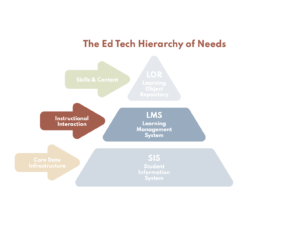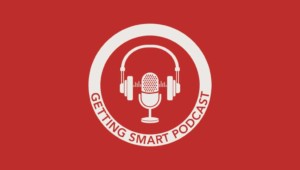Google Claims Its Slice of the MOOC Pie

“Google Claims Its Slice of the MOOC Pie” by Kristen Winkler first appeared on Edcetera.
This week’s stories about MOOCs involved a new player. Google announced two advances in the space as it joined the Open Education Alliance, which has been launched by Udacity, as well as its partnership with edX to launch MOOC.org early next year.
Open Education Alliance
The Open Education Alliance has the goal of preparing students for the jobs of tomorrow, something partners like Google have a natural interest in. The other component of this alliance is to implant new credentials into the selection process of employers. Companies are invited to help with course creation and curricula, but also to recognize the certifications of students who took one of the courses by the Open Education Alliance partners.
The Open Education Alliance (OEA) is an industry-wide alliance of employers and educators in the service of students throughout the world. It provides access to cutting-edge and relevant post-secondary education that empowers individuals to pursue successful careers in technology.
One could say that this will lead to a parallel education system eventually, driven by the interest of technology companies that feel the classic education system is not serving them with the skilled employees they need.
There are also questions asked about the meaning of “open” in the mission. Audrey Watters of Hack Education provided a definition to the term openwashing:
Openwashing: n., having an appearance of open-source and open-licensing for marketing purposes, while continuing proprietary practices.
Since the MOOC hype started last year, I have come across confusion of the term “open” in a technology or education setting myself. Before, “open” was usually attached to the idea of the open source movement and often confused with free or creative commons. It is hard to say what the “open” in Open Education Alliance means for Udacity and its partners, surely not open source or open educational resources.
There is a good article on the matter on opencontent.org, which I suggest you to read. One thing is sure, “open” lost a lot of its meaning since profit-oriented players took over the MOOC discussion in the media.
MOOC.org
Which makes the second partnership between Google and edX even more important. Back in March, I wrote about edX open sourcing its code, which enables developers to build new applications or contribute in other ways to the platform.
Now, the non-profit MOOC platform joined forces with Google to launch MOOC.org, a “YouTube for MOOCs” as Anant Agarwal, president of edX, calls it. I always said that MOOC platforms are basically glorified YouTube channels. The video content is the centerpiece and the rest is built around it.
And who knows more about running a global video distribution platform than Google? YouTube is still the biggest player in that space and will probably stay on top for many years to come. Also, Google has invested truckloads of money in its global infrastructure, something that is now powering its growth from search to maps to location based services.
And MOOC.org is not Google’s first attempt of entering the MOOC craze. Last year, Google introduced Course Builder, an open source project that enables developers or code-savvy educators to create MOOC platforms on their own. Apparently Google is planning to merge this project with MOOC.org and it is not clear whether the two will co-exist. If you visit the Course Builder project page you now see the following message
On September 10, we announced our collaboration with edX on the open source platform, Open edX. Google and edX have a shared mission to broaden access to education, and by joining forces we can work towards our goals much faster. We want to thank the Course Builder Community for your experimentation, feedback and advocacy. Your contributions have been critical and we will take our learnings from Course Builder and apply them to Open edX to further innovate on an open source MOOC platfom. For further details please see the forum announcement.
Google’s heavy involvement in the MOOC space is a clear indicator that this vertical is relevant. I assume that Google knows exactly how much interest in online education exists on a global level based on its access to search queries.
Getting involved in teaching its users is a logical evolution for a company that has evolved from a search to an answer engine. Most people today use long phrase searches in the form of questions and expect Google to give them an answer right away. And in most cases this works pretty well. Hence, it only makes sense to offer career options and courses to users who search for related terms.
Kirsten Winkler started her career as an online language tutor and became one of the first successful “edupreneurs.” Through her blogs and columns on other outlets, Kirsten has established herself as one of the pre-eminent bloggers in online education.







0 Comments
Leave a Comment
Your email address will not be published. All fields are required.